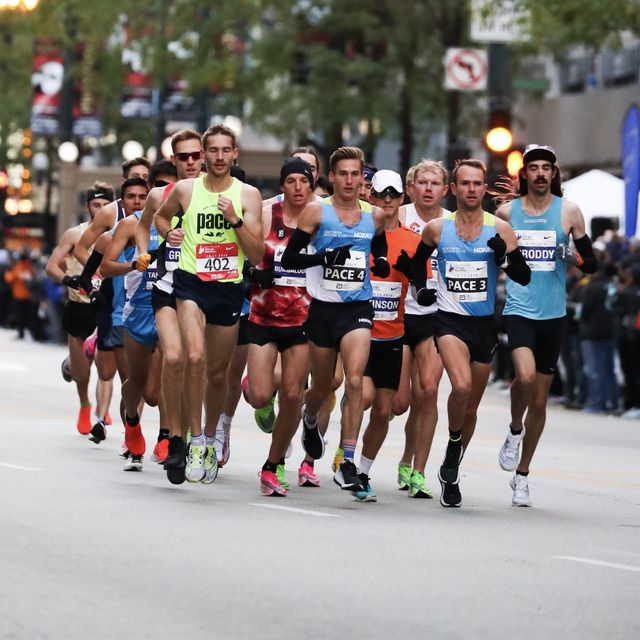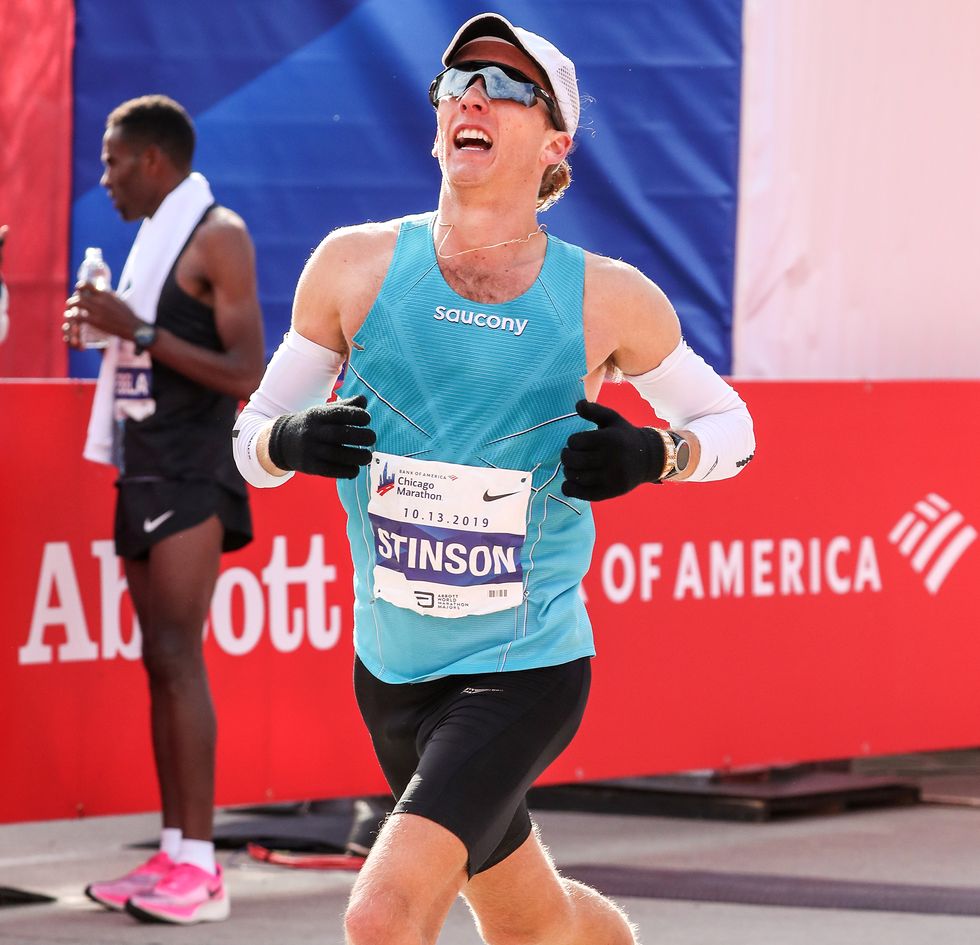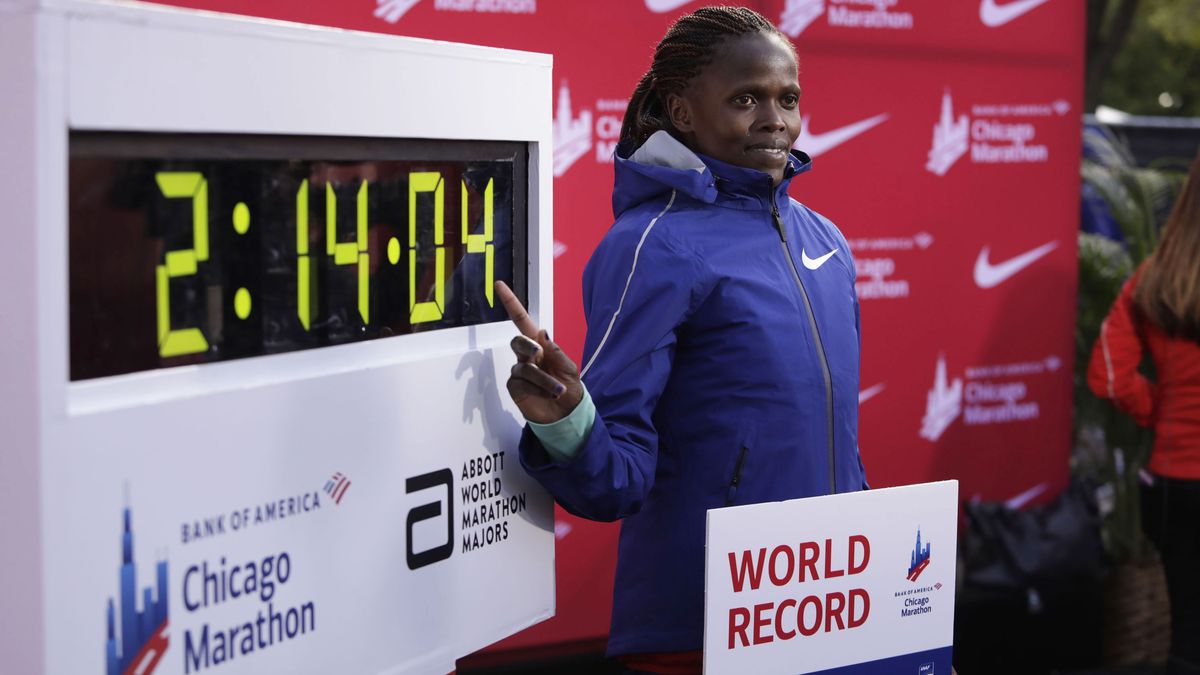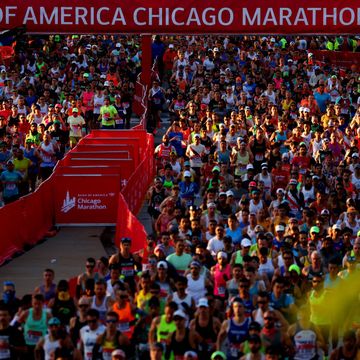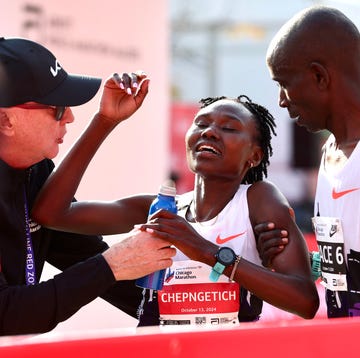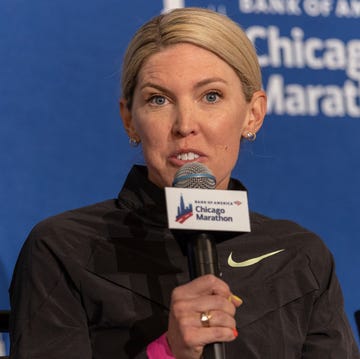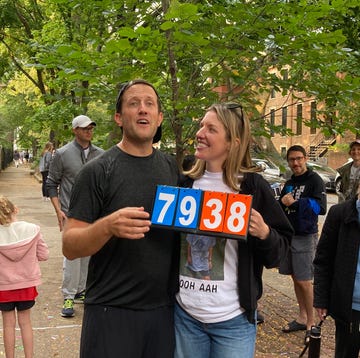The Chicago Marathon Health & Injuries Shoes & Gear. But for many of the other American pro men, the cool temperatures, boisterous crowds, and fast course brought breakthroughs.
Four U.S. men ran under 2:11, six placed in the top 15, and many others set significant personal bests.
Working together in a pack, a group of more than a dozen stuck together through about the 35K mark, trading off leading duties after wind-blocking pacers dropped out.
They didn’t coordinate beforehand, exactly, but they shared a goal: “We were all interested in having a good American day,” said top U.S. finisher Jacob Riley, 31, who finished ninth in 2:10:36.
Riley is no newcomer to Chicago—he debuted at the distance here in 2014, when he ran 2:13:16 to place second American and 11th overall. At the Olympic Marathon Trials in 2016, he placed 15th, with a 2:18:31.
But he hasn’t toed a marathon starting line since. In fact, he’s undergone a near complete life upheaval. He left Michigan and the Hansons-Brooks Distance Project to move to Boulder, Colorado, where he now trains under coach Lee Troop. In 2018, he underwent Achilles surgery due to a condition called Haglund’s deformity—the same one that affected Rupp.
Amidst all the challenge, he said, he definitely contemplated quitting. “At the same time, running has been kind of the constant in my life since I was in high school,” he said. “The idea of having all this other change and then not doing that as well was scary and just not worth it.”
After a slow, steady, return to running—he recalls Troop assigning him segments of one-minute jogs with nine-minute walk breaks—Riley raced again at the Boulder Boulder 10K in May, where he ran 31:20 and placed 25th. On Sept. 2, he ran 1:10:59 for 15th place at the USATF 20K Championships, which “felt terrible.”
“This is the first race where I've actually felt like the old me beforehand—or actually a better me, because I have two good Achilles now,” he said.
In his debut at the distance, 24-year-old Jerrell Mock ran 2:10:37 to place tenth, and second American. An All-American at Colorado State, Mock finished just out of contention to make the 10K final at the 2018 NCAA Outdoor Championships. Though he graduated last year, he still lives and trains in Fort Collins, Colorado, and is coached by CSU’s Art Siemers.
This year, he ran 1:02:15 to place 13th—and third American—in his first half marathon, in Houston. His 59:43, ninth-place finish at the USATF 20K Championships last month gave him confidence lining up in Chicago.
Still, he didn’t know quite what to expect in the marathon, given the “horror stories” he’d heard about the later miles. “I was just waiting to get to that moment of darkness,” he said. But it never came. “The mile splits just stayed right on. And so when we got to 20, I was like—‘Man, I think, I think I might've gotten away with it.”
[is a freelance health and fitness writer, author, and podcaster who’s contributed regularly to Runner's World 2020 Calendar Health - Injuries.]
Both Riley and Mock are unsponsored and wore ZoomX Vaporfly Next% shoes during the race. “I bought into the hype,” Riley said, though he noted he’s open to experimentation if any sponsors should come calling. Mock expressed similar sentiments: “There’s a lot of companies that are coming out with the same kind of idea now,” he said. “I’d be interested to try some of those too.”
Parker Stinson, meanwhile, runs in Saucony—making him one of the few elites in the field not to sport bright pink on their feet. He denied that puts him at a disadvantage, noting that he broke the American record in the 25K—the 1:13:48 he ran in May’s River Bank Run—in the brand.
And today, those shoes carried him to a nearly four-minute personal best in the marathon. He finished 11th in 2:10:53.
The moment served as validation for Stinson, 27, who’s known for starting out fast and fading before the finish. Now that he’s run the race his training indicated he was capable of, “I finally feel like an actual marathoner.”
Watch: Riley, Stinson, and other top finishers discuss their days after the 2019 Chicago Marathon.
And it’s all the more meaningful coming less than a year after he joined forces with coach Dathan Ritzenhein, a three-time Olympian who was scheduled to run Chicago himself until injury forced him to drop out in September.
“I want this 2:10 for myself so much, but a lot of times out there I really thought about how much Dathan's invested in this and all the time he's spent,” Stinson said, visibly emotional. “I wanted to see him at the finish line—I wanted that moment.”
Bowerman Track Club standout Andrew Bumbalough, 32, also ran a personal-best 2:10:56, which earned him 12th place. Behind him, Brendan Gregg, 30, of Hansons-Brooks ran 2:11:38, almost a two-minute improvement on his previous personal best from the California International Marathon (CIM) in 2018. Noah Droddy—a fan favorite who trains with the Roots Running Project in Boulder—clocked 2:11:42, which improved the 29-year-old’s career best by five minutes.
The improvements continued to pile up between 2:11 and 2:12. Atlanta Track Club standout Matthew McDonald ran 2:11:10, which beat his previous personal best by almost three minutes. He ran 2:14:07 at CIM in December 2018. Scott Smith, 33, of NAZ Elite notched a 53-second improvement when he finished 15th in 2:11:14.
Wilkerson Given continued the momentum as well when he ran a four-minute personal best of 2:11:44, and Diego Estrada, a 2012 Olympian for Mexico, rounded out the sub-2:12 group with a personal best of 2:11:54. Not only was that nearly two minutes faster than his 2:13:56 previous best, set here in Chicago in 2016, the race went much smoother—that year, he tripped on a water bottle at 10K, then recovered and returned to the lead pack to place eighth overall and first American.
One thing’s for certain, Stinson said: The men’s race for the U.S. Olympic Trials in February just got “a whole lot more interesting.”

Cindy is a freelance health and fitness writer, author, and podcaster who’s contributed regularly to Runner’s World since 2013. She’s the coauthor of both Breakthrough Women’s Running: Dream Big and Train Smart and Rebound: Train Your Mind to Bounce Back Stronger from Sports Injuries, a book about the psychology of sports injury from Bloomsbury Sport. Cindy specializes in covering injury prevention and recovery, everyday athletes accomplishing extraordinary things, and the active community in her beloved Chicago, where winter forges deep bonds between those brave enough to train through it.
Taylor Dutch is a writer and editor living in Austin, Texas, and a former NCAA track athlete who specializes in fitness, wellness, and endurance sports coverage. Her work has appeared in Runner’s World, SELF, Bicycling, Outside, and Podium Runner.
